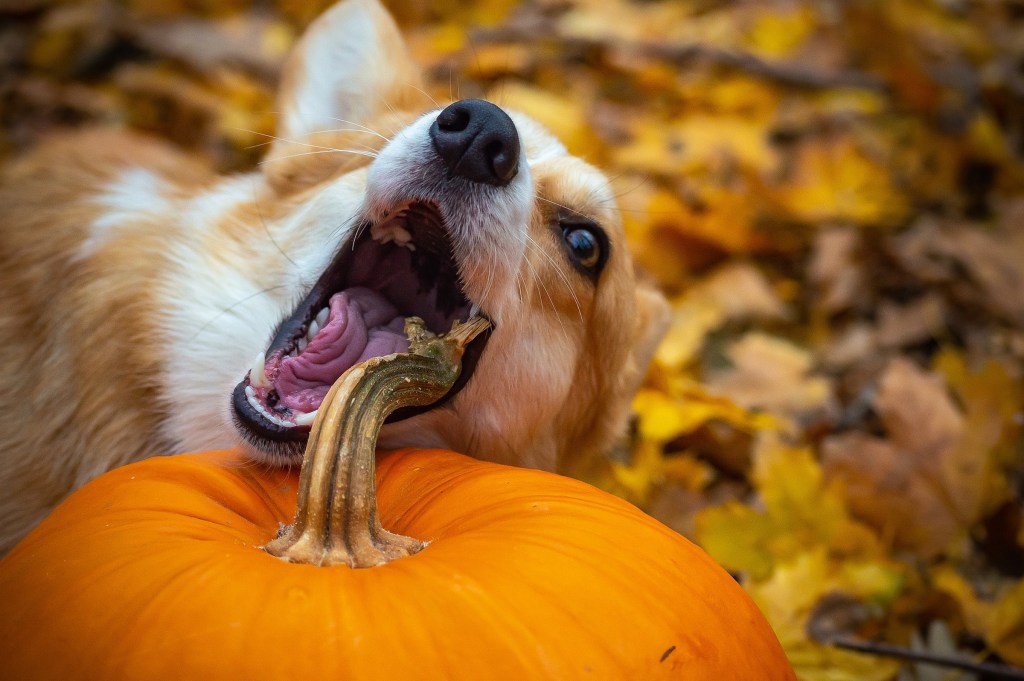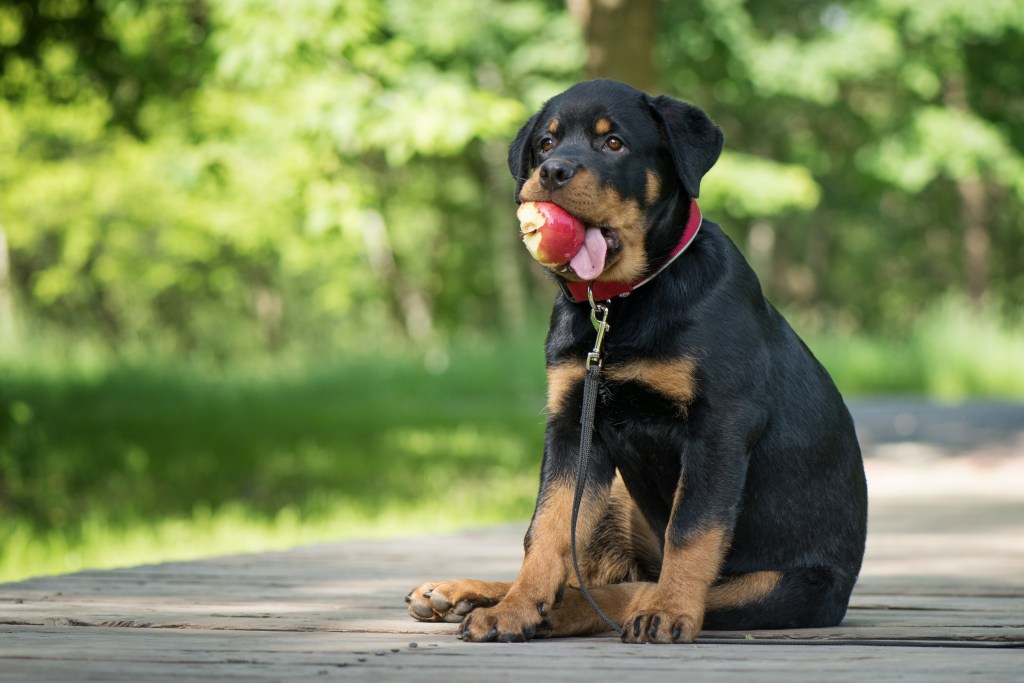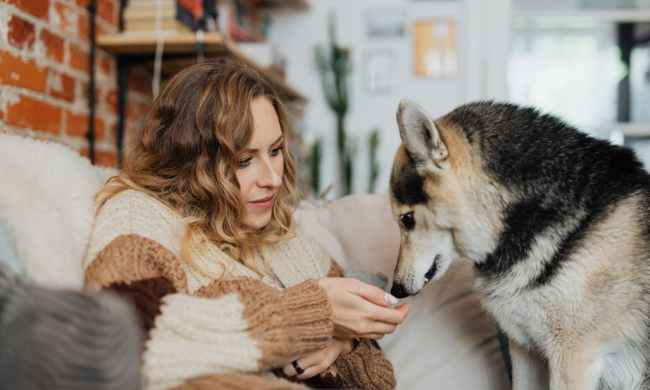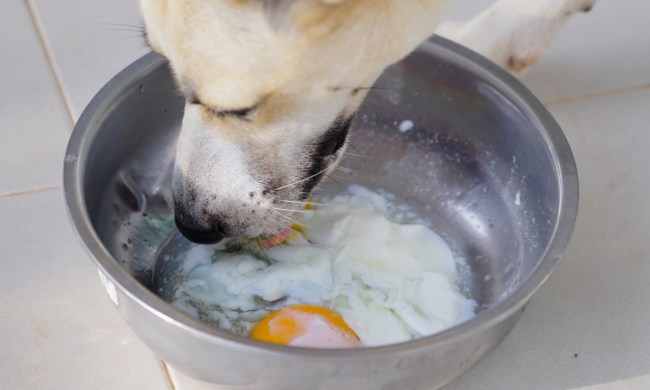With the rich colors of autumn come the delicious produce and meals that follow a chilly day’s work. Indulging in a meal is a great way to embrace the coziness of the season, but don’t forget to share some food with your dog! She deserves to enjoy the season’s bounty, too, after all.
This article is for all the pet parents Googling “Are apples bad for dogs?” Or “Is butternut squash good for dogs?” Because we’ll answer these questions and more. We’ll go over the best fall foods to share with your furry friend without fear of making her sick. First, remember that certain festive foods — mainly sweets, grapes, and nuts — should never be given to your pup, even on a holiday. Here are all the best safe foods for a perfect autumn snack.

Pumpkin
Whether or not you’re a pumpkin spice latte kind of pet parent, your pup just might be into this popular fall vegetable. Its sweet taste and creamy texture are a welcome break from the kibble or wet food your dog is used to, though make sure to avoid any spices, sweeteners, or other mix-ins.
Although a fresh piece of pumpkin will make a perfect snack as is, opting for plain, canned pumpkin will give your dog more fiber and nutrients per serving (this is because fresh pumpkin has a greater concentration of water in its tissue), according to the American Kennel Club (AKC).
Butternut squash
This popular fall produce is a lot like pumpkin in its texture, taste, and nutritional value. The similarities don’t end there, either — you should prepare squash the same way you would a pumpkin when serving it to your dog. It should not be given to your dog raw, sweetened, or alongside any herbs or spices.
Turkey
Whether you consider turkey a Thanksgiving tradition or a year-round delicacy, there’s always an abundance of this meat in the fall. Turkey is a great source of protein for both you and your pet, and you can prepare it in a number of ways (though your dog shouldn’t eat any seasonings or spices).
Turkey is often leaner than other meats, making it a healthy choice for dogs who need to watch their weight. When serving it to your pet, make sure to remove all the skin and bones. It should be cooked with no seasonings, herbs, onions, or garlic, so you may want to prepare your pup’s meal separately from your own.

Apple
This fun fall favorite is low in protein and fat but high in nutrients and fiber. It makes a great treat on its own or mixed with your dog’s favorite kibble, though you should remove all skin, seeds, and core when preparing. Many dogs’ intestines are totally fine with apple skin, but it does pose some risk of upset, so it’s really your choice.
Remember, small dogs won’t be able to eat or even hold a whole slice, so you may want to cut each slice into smaller pieces. All kinds of apples, whether sweet or tart, are safe for canine consumption … though your dog may find a favorite.
Corn
Corn gets a bad rap, but it’s more than a filler in dog foods. It contains protein, fat, and even some vitamins, all of which add up to a healthy body and mind. Corn also contains fiber, which can keep your pup, well, regulated. It’s easy to have too much of a good thing, though, so this food should also be given in moderation. Overall, this autumn carbohydrate is equally nutritious for a person or a pup, so feel free to share some corn with your dog.
Carrots
These veggies do a lot more than just encourage healthy eyesight — they’re a great source of vitamin A, they’re low in calories, and they’re great for teething pups. Plus, they have that bright pop of fall color that looks scrumptious in any bowl.
Dogs can eat carrots raw for a fun crunch, though they can also be cooked or even dried. Carrot jerky is a great snack for fur babies who love to chew, and all you really need are carrots and an oven.
With yummy options like these fall foods, you can surely find something to share with your fur baby at the dinner table. Remember that moderation is key no matter what you’re giving your pup, even fruits and veggies. From sweet to savory to every flavor in between, there’s a treat for every pup hidden somewhere in your autumn cornucopia.



